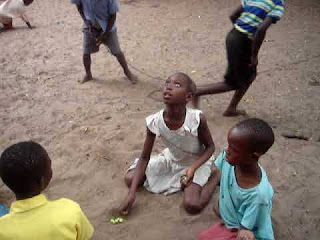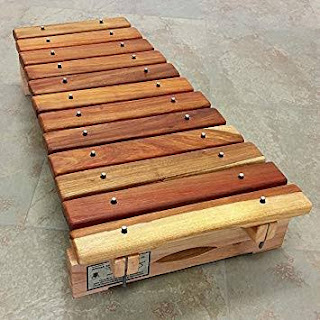ABANYALA BA KAKAMEGA: Pronouns 1- Reflexive Pronouns.
REFLEXIVE PRONOUNS IN OLUNYALA (K)
Reflexive pronouns are pronouns that refer back to the person or the thing named in the subject. They refer to the antecedent. For example:
(a) Witches bewitched themselves.
(i) Abalosi beloka abaene.
(ii) Abalosi baeloka.
In the above sentences, themselves in sentence (a) is a reflexive pronoun- the doer of the action is the recipient of the same action. In the Olunyala (K) translation of sentence (i), abeene is a reflexive pronoun. In the Olunyala translation (ii), the verb baeloka has a reflexive pronoun marker ~e~. Due to tone use on the RPM, the vowel before it is less realised making it to be released as [b'é:lòká]
Olunyala (K) can be said to have two known ways of forming reflexive pronouns:
- Reflexive pronouns formed from the root pronoun ~ene
- Reflexive pronouns formed by use of Reflexive Pronoun Marker (RPM) ~e~
The Reflexive Pronoun Root (RPR) ~ene takes specific class-marked noun concord prefixes to form different reflexive pronouns for the nouns in different word classes.
- Reflexive pronoun for me which is translatable as ese is esesamuene (ssamuene) for myself. It can come before or after the verb.
- Samuene endi okhubakha omunwa.
- Ese endi okhubakha omunwa samwene. (Ssamuene)
- Reflexive pronoun for you (singular) which is translatable as ewe is ewemuene (wuamwene) for yourself. It can come before or after the verb.
- Wuamuene oli okhulia.
- Oli okhulia wuamuene.
- Reflexive pronoun for you (plural) which is translatable as enywe/mue is enyweabene (nyweabene) for yourselves. At times, muabene is ised. It can come before or after the verb.
- Enyweabene muli okhulia.
- Muli okhulia enyweabene.
- Reflexive pronoun for us which is translatable as efwe is efweabene (fwabene) for ourselves. It can come before or after the verb.
- Fwabene khuli okhulia.
- Khuli okhulia fweabene.
- Reflexive pronoun for it and them use noun class concord prefixes with ~ene to refer to either itself of themselves. When not referring to human, they are the equivalent of the reflexive pronoun itself and themselves. The following reflexive pronouns relate to the noun concord classes. The classes are based on mufumo mpya wa ngeli.
- O-ABA class (Omulosi-abalosi)
- Omulosi oyu akwiye omuene.
- Abalosi aba bakwiye abaene.
- OCHU-EBI class (ochusera-ebisera)
- Ochusera ochu chukwiye ochuene.
- Ebisera ebi bikwiye ebiene.
- AKHA-OCHU class (akhachwe- ochuchwe)
- Akhachwe akha khakwiye akhaene.
- Ochuchwe ochu chukwiye ochuene.
- OKU-EKI (Okueyo- emieyo)
- Okueyo oku kukwiye okuene.
- Emieyo eki kikwiye ekiene.
- ELI-AKA (elino-ameno)
- Ekeko eli likwiye eliene.
- Amakeko aka kakwiye akaene/ (also infornally: amaene.)
- EYI-ECHI (eng'ombe-Eng'ombe)
- Eng’ombe eyi yikwiye eyiene (also enyene/eng'ene is used).
- Engombe echi chikwiye echiene.
- ESI-EBI (esisero-ebisero)
- Esisero esi sikwiye esiene.
- Ebisero ebi bikwiye ebiene.
- OLU-OWU (Oluyefwe-Owuyefwe)
- Oluoya olu lukwiye oluene.
- Owuoya owu wukwiye owuene.
- OLU-ECHI (oIufuyiro- efuyiro)
- Olufuyiro olu lukwiye oluene.
- Efuyiro echi chikwiye echiene.
- OKHU-OKHU (Khumuchwe-khumichwe)
- Khumukongo okhu khukwiye okhuene.
- Khumikongo okhu khukwiye okhuene.
- AHA-AHA (ahasiaki-ahabiaki)
- Ahalukongo aha hakwiye ahaene.
- Ahangongo aha hakwiye ahaene.
- OMU-OMU (Mukhuchwi-mumachwi)
- Mukhuchwi omu mukwiye omuene.
- Mumachwi omu mukwiye omuene.
- AKA-AKA (Amasika- amasika)
- Amasika aka kakwiye akaene.
- Amasika aka kakwiye akaene (also amaene is used for plural items in this class.)
- ELI-ELI (Ebundi-ebundi)
- Ekhwe eli likwiye eliene.
- Ekhwe eli likwiye eliene.
- OLU-OLU (Olukhana- olukhana)
- Olusolili olu lukwiye oluene.
- Olusolili olu lukwiye oluene.
- OWU-OWU (Owusera- owusera)
- Owusie owu wukwiye owuene.
- Owusie owu wukwiye owuene.
b) Reflexive pronouns formed from the Reflexive Pronoun Marker infix ~e~
This is one of the most productive methods of forming reflexive pronouns in Olunyala (K). The pronoun is dependent on the verb. The Reflexive Pronoun Marker infix (RPM) is put on a verb. In Olunyala (K), this Reflexive Pronoun Marker is allophonic in occurrence: the widespread ~e~ and the ~i~ found along River Nzoia. The use of the Localised Reflexive Pronoun Marker (LRPM) ~i~ can be said to be due to the influence of Lubukusu dialect.
The following show how the RPM relates with other noun concord prefixes to form reflexive pronouns for the nouns in various classes. There is usually the use of Reflexive Pronoun Tone Shift when articulating the ~e~ to distinguish it from the verb’s present perfect continuous tense marker.
- O-ABA
- Omusacha owaekwira wuwo.(A Man who fell himself is yours.)
- Abasacha abaekwira babo.
- OCHU-EBI
- Ochusie ochuaekwira chuchuo.
- Ebisie ebiaekwira bibio.
- AKHA-OCHU
- Akhachwe akhaekwira khakho.
- Ochuchwe ochuaekwira chuchuo.
- OKU-EKI
- Okueyo okuaekwira kukwuo.
- Emieyo ekiekwira kikio.
- ELI-AKA
- Ekeko eliaekwira lilio.
- Amakeko akaekwira kako.
- EYI-ECHI
- Eng’ombe iyiaekwira yiyio.
- Engombe echiekwira chichio.
- ESI-EBI
- Esisero esiaekwira sisio.
- Ebisero ebiaekwira bibio.
- OLU-OWU
- Oluoya oluaekwira luluo.
- Owuoya owuaekwira wuwuo.
- OLU-ECHI
- Olufuyiro oluaekwira luluo.
- Efuyiro echiaekwira chichio.
- OKHU-OKHU
- Khumukongo okhuaekwira khukhuo.
- Khumikongo okhuekwira khukhuo.
- AHA-AHA
- Ahalukongo ahaekwira haho.
- Ahangongo ahaekwira haho.
- OMU-OMU
- Mukhuchwi omuaekwira mumuo.
- Mumachwi omuaekwira omuaekwira mumuo.
- AKA-AKA
- Amasika akaekwira kako.
- Amasika akaekwira kako.
- ELI-ELI
- Ekhwe eliaekwira lilio.
- Ekhwe eliaekwira lilio.
- OLU-OLU
- Olusolili oluaechire luluo.
- Olusolili oluaechire luluo.
- OWU-OWU
- Owusie owuaekwira wuwuo.
- Owusie owuaekwira wuwuo.




Comments
Post a Comment